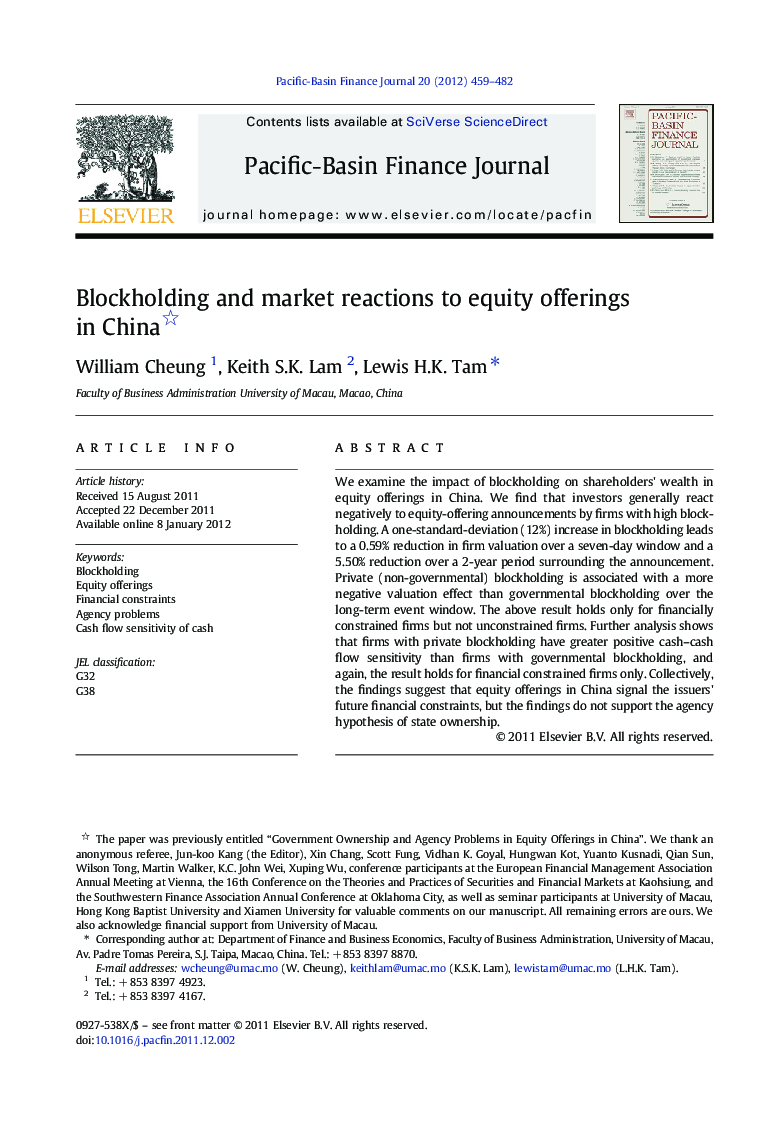| Article ID | Journal | Published Year | Pages | File Type |
|---|---|---|---|---|
| 973725 | Pacific-Basin Finance Journal | 2012 | 24 Pages |
We examine the impact of blockholding on shareholders' wealth in equity offerings in China. We find that investors generally react negatively to equity-offering announcements by firms with high blockholding. A one-standard-deviation (12%) increase in blockholding leads to a 0.59% reduction in firm valuation over a seven-day window and a 5.50% reduction over a 2-year period surrounding the announcement. Private (non-governmental) blockholding is associated with a more negative valuation effect than governmental blockholding over the long-term event window. The above result holds only for financially constrained firms but not unconstrained firms. Further analysis shows that firms with private blockholding have greater positive cash–cash flow sensitivity than firms with governmental blockholding, and again, the result holds for financial constrained firms only. Collectively, the findings suggest that equity offerings in China signal the issuers' future financial constraints, but the findings do not support the agency hypothesis of state ownership.
► We classify blockholding into central-government, local-government and private. ► Investors react negatively to equity offerings in China. ► Private blockholding is associated with the most negative market reaction. ► Private blockholder firms are the most financially constrained post-offering. ► The above results are stronger for more financially constrained firms.
